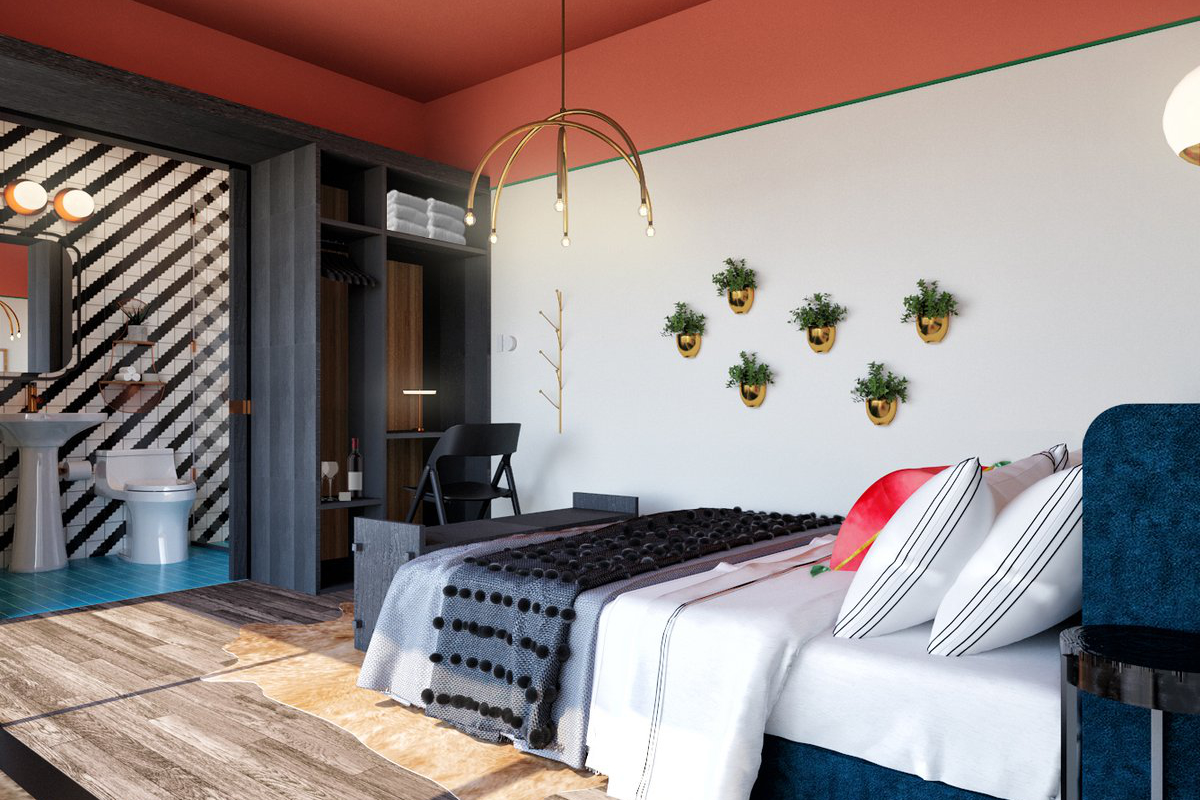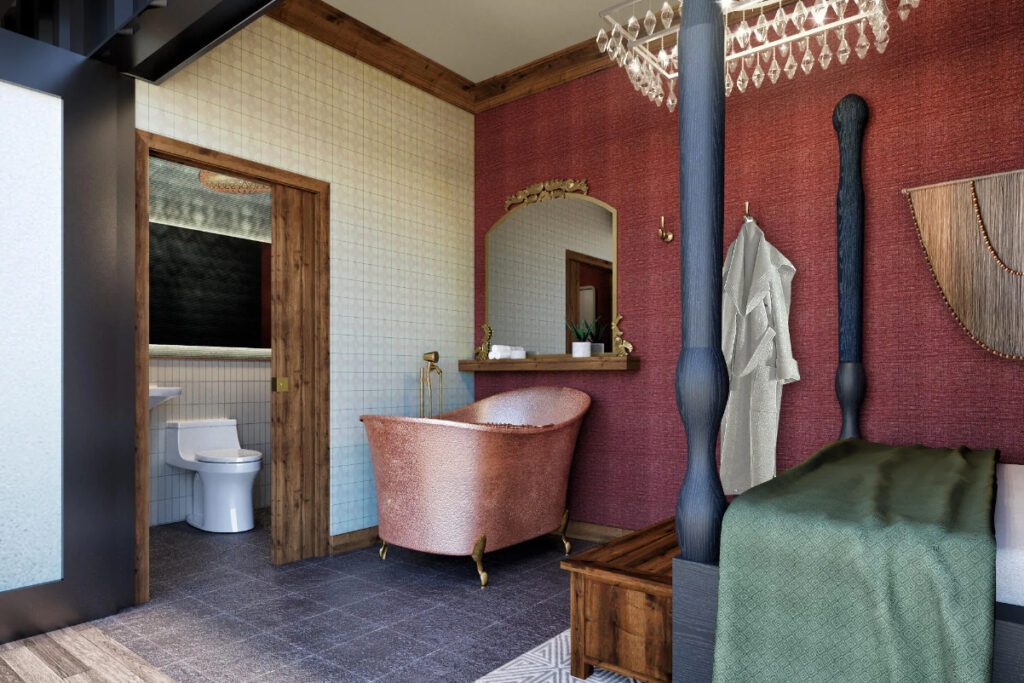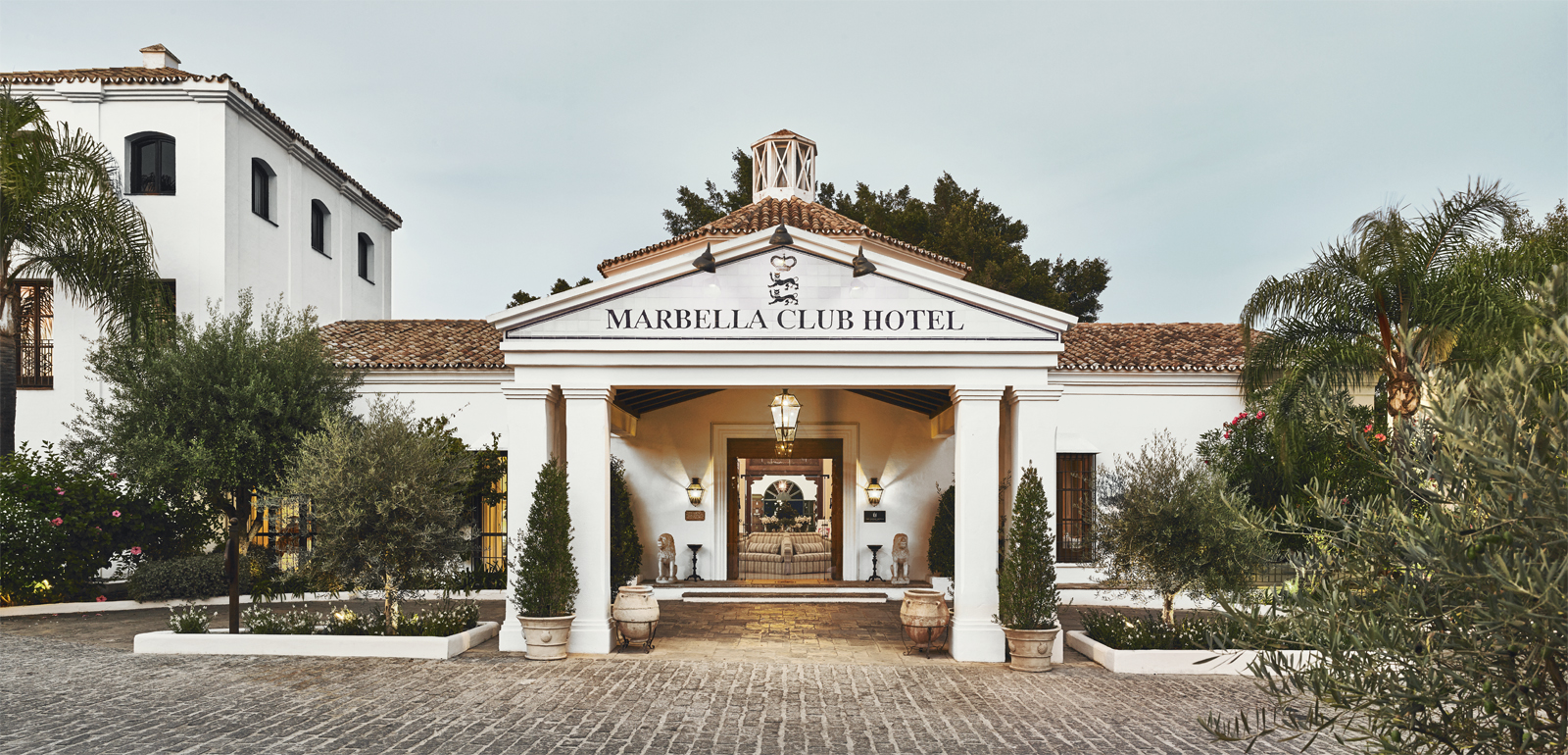Hotel Brand Tiny Urban Escapes Taps Into Micro Luxury and Sustainability

Skift Take
A boutique hotel opening in July in the historically Black neighborhood of Haughville, Indianapolis, aims to tap into a few trends percolating in hospitality broadly: helping guests feel a sense of place and reducing the carbon impact of hotel operations. Tiny Urban Escapes will strive to bring a small, green oasis into the middle of a bustling Indiana city with luxury touches.
Founder and CEO Robin Staten-Lanier has tapped four upcycled shipping containers to create suites, a courtyard, and a glass pavilion, creating a green space near Belmont Beach, a historical site for African Americans near a swimming hole.
“It was the only place they were allowed to swim in the city,” Staten-Lanier said.
Despite the innovations, Staten-Lanier wasn’t born into the hotel business, technically speaking.
“I’m not a Hilton, so I don’t come from a family of hoteliers or anything,” Staten-Lanier said.

Instead, Staten-Lanier was inspired to leave her role in higher education and launch a boutique hotel brand thanks to her grandmother, Ira J. Staten.
“Some of the fondest memories I have as a child all centered around her home and the space she created — a tiny, four-room bungalow-style home,” Staten-Lanier said. “But it seemed much larger than life as a child, and the spirit of hospitality she embodied every day inspired me to — years later — start on this journey.”
Staten hopes to embody that same level of hospitality with Tiny Urban Escapes, a wellness hotel and retreat. She’s looking to not only tell the community’s story — it is, after all, the same city she grew up in — but also bring locals into her project, whether through on-site yoga events or gatherings.
Beyond the launch, Staten seeks to expand her boutique brand in other cities.

Creating Tiny Urban Escapes
When crafting the Tiny Urban Escapes concept, Staten-Lanier knew she wanted to do something forward-thinking and sustainable. So when she came across a Canadian brand upcycling shipping containers by incorporating lots of glass, she immediately asked for advice on creating her concept.
“They were instrumental in the visual imagery that I wanted for Tiny Urban Escapes, and their use of glass and the concept of bringing the outside in and maximizing micro-spaces,” said Staten-Lanier.
She then hired a team of architects, civil and structural engineers, construction managers, and an interior design team and got to work sketching out the physical spaces and pavilion surrounding a green courtyard.
“Any time you are saving material, it’s more sustainable, and I’m very intentional about the host space, and keeping it as close to its natural environment as possible, and our shipping containers go on piers [which are metal screws], so there is less damage done to the local environment,” Staten-Lanier said.

Her choice of Indianapolis for the first Tiny Urban Escapes was clear and intentional.
“I grew up in a community that was often overlooked and disinvested in, and I was not always privy to the visualization of luxury amenities,” Staten-Lanier said.
Guests of Tiny Urban Escapes will feel like locals of the Haughville neighborhood and be encouraged to visit its local eateries. The hotel doesn’t have a restaurant for this reason. The property’s location at a major corridor to downtown Indianapolis could make it easy for travelers to check out the city’s main tourist attractions and businesses.
Staten-Lanier is also committed to ensuring she builds in harmony with the community. At the start of the process, she visited neighborhood, homeowner, and business associations to discuss her plan.
“I wanted the messaging to be that, regardless of how these communities have been overlooked, they deserved the investment of a brand that was committed to more than profit, but was committed to the people and the community itself as a whole,” said Staten-Lanier.
Staten-Lanier has partnerships with local non-profits and is planning to team up with community organizations that can use Tiny Urban Escapes as a host site to help them further their mission. While most of the initial reaction to the brand was positive, there was also a bit of early pushback over gentrification.
“As an African American female who has witnessed the effects of gentrification, what it allowed me to do was to connect with those individuals who had those concerns and talk about who I was as a community resident and my family as lifetime community residents, and hear about what they envisioned, which helped me to shape the brand,” Staten-Lanier said.
Carving Out Space in Hospitality
As a hotel owner and developer, Staten-Lanier has been met with continuous obstacles as she creates her space in the industry.
“Like many industries, the hospitality industry is no exception to the white, male-dominated presence,” Staten-Lanier said. “You’re met, not only as being a woman, but a woman of color, with challenges that wouldn’t exist in that world.”
She has had plenty of instances where she’s shown up in a room and no one has looked like her.
“I represent the less than 1 percent of females at the ownership and development level of brands overall, and I represent the less than 1 percent of those women who happen to be an African American female,” Staten-Lanier said.
“It’s been challenging when you talk about access to capital and having a concept that is innovative in an industry and not taken as seriously as someone whose privilege has handed them the opportunity,” said Staten-Lanier. “As a Black female, I’ve had to work twice as hard, if not three times as hard, to prove I’m equally as, if not more, deserving of the space I’ve created for myself.”
Before taking on Tiny Urban Escapes, Staten-Lanier worked for over a decade in higher education, at a predominantly white institution, with roles in diversity, equity, and inclusion, as well as finance and administration. She knew she wanted to start a hospitality brand of her own, but hoped to learn the ins and outs of the industry before making the leap.
So, Staten-Lanier planned to shadow a general manager at a large-scale chain hotel property in downtown Indianapolis, with over 300 rooms and a Starbucks. But after her initial meeting, she found herself in an assistant controller position.
“I did not plan on walking out that day with a job, but it was rewarding from the time I spent there to begin to learn the intricacies of hospitality, operations, sales, and customer service, so it was a much-needed baptism by fire,” Staten-Lanier said.
“There’s a lack of diversity at the top levels in hospitality, but also in other areas,” Staten-Lanier said. “We had a black female architect lead this project and an all-female led-interior design team. So [this project] is history-making in a number of aspects.”
Now, Staten-Lanier hopes to connect with global citizen travelers who have a vested interest in culture, community, and the environment — and with locals who want “an adult time out.”
Staten-Lanier will continue to push forward, especially as she looks to open locations in other communities that can benefit from a property like Tiny Urban Escapes. She’s preparing for hurdles along the way but also for eventual wins.
“From the beginning, I thought of Tiny Urban Escapes as a global brand entity,” Staten-Lanier said. “I told myself that if I was going to do it, I was going to try and do it big.”





